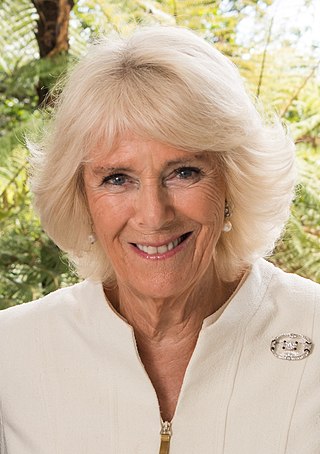Related Research Articles
Gerda is a feminine given name. Notable people with the name include:
Inge is a given name in various Germanic language-speaking cultures. In Swedish and Norwegian, it is mostly used as a masculine, but less often also as a feminine name, sometimes as a short form of Ingeborg, while in Danish, Estonian, Frisian, German and Dutch it is exclusively feminine. The feminine name has the variant Inga.
Randi is both a given name, and a nickname in the English language, popular in North America and Norway. It is primarily a feminine name, although there is recorded usage of the name by men. It may have originated as a pet form of Miranda or as a feminine form of Randy. In turn, Randy was originally derived from the names Randall, Randolf, Randolph, Bertrand and Andrew.

Ole Eduard Fischer Madsen was a Danish international footballer, who scored 42 goals in 50 matches for the Denmark national team and competed at the 1964 European Nations' Cup. He is best remembered for scoring on a heel kick against Sweden in 1965. He played 11 seasons for Danish lower-league clubs, before signing a professional contract for Dutch club Sparta Rotterdam, winning the 1966 KNVB Cup with the team.
Lauritz is a typically masculine given name, a Scandinavian form of the English Laurence or Lawrence. Another Danish and Estonian form is Laurits.
Jacqueline is a given name, the French feminine form of Jacques, also commonly used in the English-speaking world. Older forms and variant spellings were sometimes given to men.
Ulrikke is a feminine given name found primarily in Denmark and Norway. It is a feminine form of the masculine name Ulrik. Notable people named Ulrikke include:
Vilhelm is a masculine given name, the Scandinavian form of William and Wilhelm. Notable people with the name include:

Andrew is the English form of the given name, common in many countries. The word is derived from the Greek: Ἀνδρέας, Andreas, itself related to Ancient Greek: ἀνήρ/ἀνδρός aner/andros, "man", thus meaning "manly" and, as consequence, "brave", "strong", "courageous", and "warrior". In the King James Bible, the Greek "Ἀνδρέας" is translated as Andrew.
Antonia, Antónia, Antônia, or Antonía is a feminine given name and a surname. It is of Roman origin, used as the name of women of the Antonius family. Its meaning is "priceless", "praiseworthy" and "beautiful". Antonia is a Polish, Portuguese, Spanish, Italian, and Maltese name used in many parts of the world.

Camilla or Camila is a feminine given name. It originates as the feminine of camillus, a term for a youth serving as acolyte in the ritual of ancient Roman religion, which may be of Etruscan origin. Hypocorisms of the name include Milly, Millie, and Milla.
Agneta is a Scandinavian variant of the feminine given name Agnes. It was derived from Latin and is the ablative case attached form of Agnes.
Madsen is a common surname of Danish origin. The meaning of Madsen is Son of Mads. "Mads" is Danish form of Matthew. Madsen is used rarely as a first name.
Else is a feminine given name, appearing in German, Danish and Norwegian. It is a shortened form of Elisabeth.

Kamilla and Kamila are feminine given names used in a number of languages and throughout history with roots in Slavic, Arabic, and South Asian languages and Latin.
Tona, Toña, Toňa and Tóna are given names. Tona is a Danish, Norwegian, Spanish and Swedish feminine given name in use in Denmark, Greenland, Sweden, Norway, Spain, parts of the United States, Mexico, Cuba, Dominican Republic, Guatemala, Honduras, El Salvador, Nicaragua, Costa Rica, Western Panama, Colombia, Venezuela, Peru, Ecuador, Bolivia, Chile, Paraguay, Argentina, Uruguay, and the Falkland Islands. The name is a short form of Antonia as well as an alternate form of Þone. Tona is also a Danish, Norwegian and Swedish feminine given name in use in Denmark, Greenland, Sweden, and Norway as a short form of Antona as well as an alternate form of Tone and Torny. Tóna is a Faroese feminine given name that is an alternate form of Tona, Tone and Torny. Toña is a Spanish feminine given name that is a short form of Antonia used in Spain, parts of the United States, Mexico, Cuba, Dominican Republic, Guatemala, Honduras, El Salvador, Nicaragua, Costa Rica, Western Panama, Colombia, Venezuela, Peru, Ecuador, Bolivia, Chile, Paraguay, Argentina, Uruguay, and the Falkland Islands. Toňa is a Czech masculine given name that is a diminutive form of Antonín used in the Czech Republic. It is also a surname. Notable people with this name include the following:
Antonine is a Swedish, Danish, and Norwegian feminine given name that is a form of Antonina and a diminutive form of Antonia that is used in Norway, Denmark, Sweden and Greenland. It is also a masculine name. Notable people with this name include the following individuals:
Kaja or Kája is a given name and surname.

Jacobine Susanne "Ina" Madsen was a Norwegian opera singer and voice teacher.
Gitte is a feminine given name which is mostly used in Denmark, but is also popular in Belgium. It is a reduced version of Birgitte. The name was particularly popular in the 1960s and 1970s. Notable people with the name include:
References
- ↑ "Jacobine". Name Doctor. Retrieved 19 October 2024.
- ↑ "Jacobine". Dansk Navneleksicon (in Danish). Retrieved 19 October 2024.
- ↑ James Stephen Ferrall; Þorleifur Guðmundsson Repp (1845). A Danish-English Dictionary. Gyldendal. p. 429.